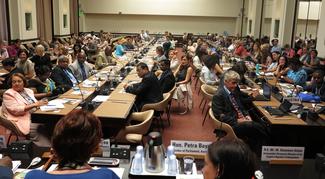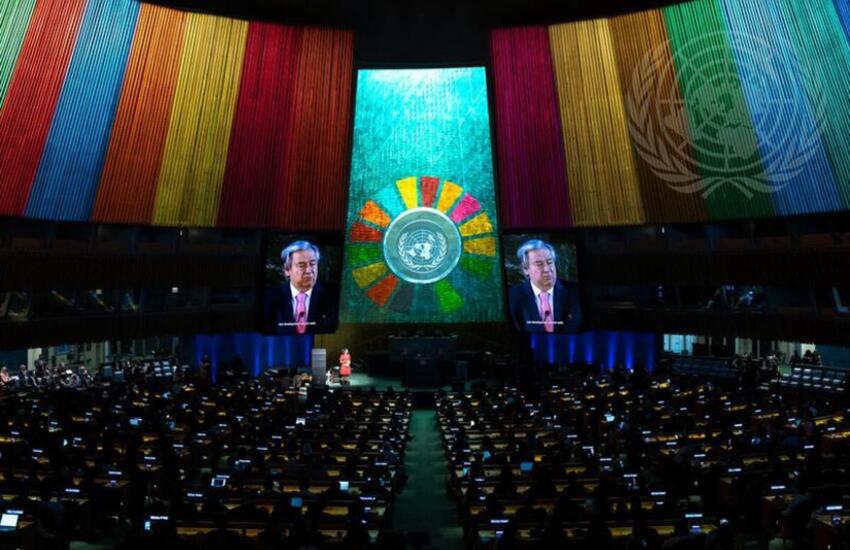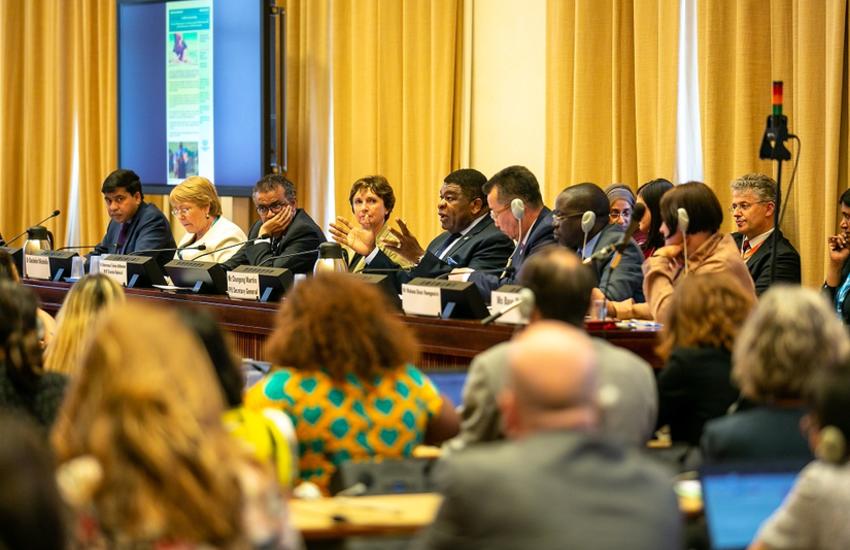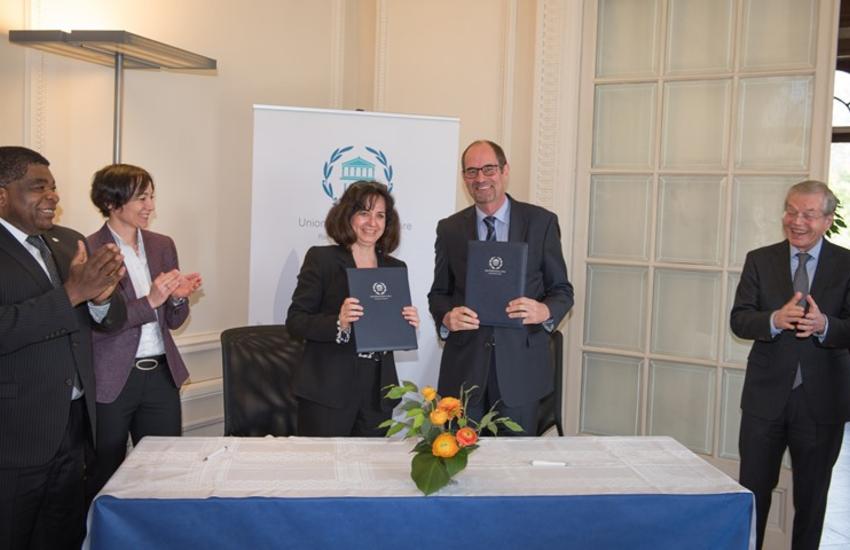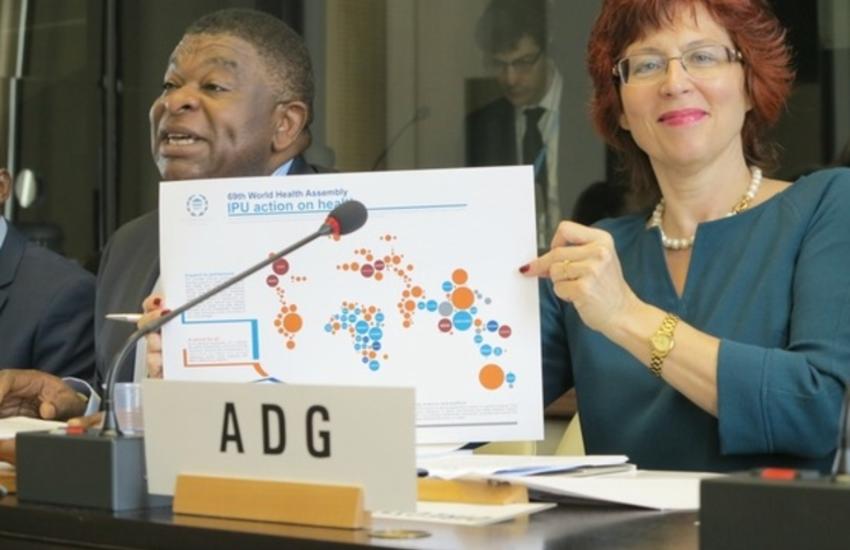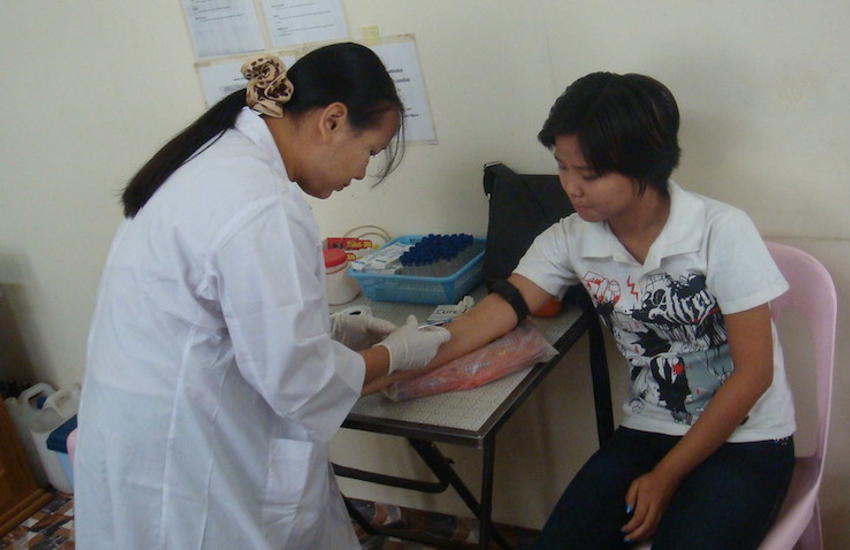As part of our work on health and development, the IPU participated in the World Health Assembly (WHA).
On 24 May, IPU Secretary General Martin Chungong addressed the WHA plenary debate for the second consecutive year. He spoke about the cooperation between the World Health Organization (WHO) and the IPU in strengthening links between the parliamentary and scientific communities to realize the right to health and contribute to shaping healthier societies. As a result of this cooperation, an increasing number of parliamentarians were participating in the WHA. Mr. Chungong emphasized the MPs’ contribution to the global health agenda and their key role in achieving the health-related Sustainable Development Goals (SDGs).
“I am mindful of the cross-cutting nature of the 2030 Agenda for Sustainable Development and how improving health systems is dependent on many factors outside the health sector. I am also aware that Agenda 2030 reminds us all that to continue business as usual is not an option,” said Mr. Chungong. “It is in this spirit that the IPU will support parliaments to deliver on the targets of SDG3 and, therefore, build better national health systems.”
In this context, on 29 May, the IPU—with Austria, Bangladesh, Cameroon, the Partnership for Maternal, Newborn and Child Health (PMNCH), and the WHO—organized a parliamentary side event at the WHA, “Bridging the Gap between Evidence and Policy: The Role of Parliamentarians in Advancing the 2030 Agenda for Sustainable Development”. The side event focused on how parliamentarians could use scientific evidence to inform national decision-making and oversight. Participants included MPs, ministers of health, representatives from the health community and non-governmental organizations, and WHO officials.
WHO Director General Margaret Chan stressed the IPU’s critical role in helping to translate science into policy and legislation, a sentiment echoed by other participants. Ian Askew, Director of Reproductive Health and Research at the WHO, highlighted the importance of presenting evidence in a way that the general public could understand it and said that the IPU provided guidance on this, quoting the joint IPU-WHO report on child marriage.
MPs spoke of the importance of evidence and how they used it in their fight against myths and misconceptions and illegal health practices. They said it was important to continue the dialogue between the health community and MPs, and called for a regular space for this at the WHA.





